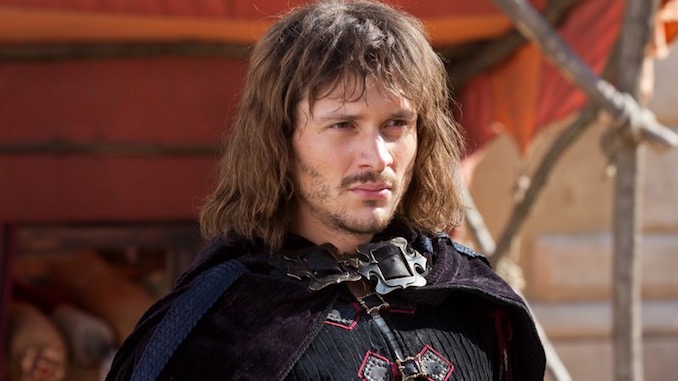It Still Stings: The Borgias Never Fully Recovered from Losing Juan
Photo Courtesy of Showtime
Editor’s Note: TV moves on, but we haven’t. In our feature series It Still Stings, we relive emotional TV moments that we just can’t get over. You know the ones, where months, years, or even decades later, it still provokes a reaction? We’re here for you. We rant because we love. Or, once loved. And obviously, when discussing finales in particular, there will be spoilers:
![]()
While many TV and movie writers look to England for stories about life during the Renaissance and Medieval periods, Italy had just as much drama as their neighbors to the west. Coming right after Showtime’s English royals drama, The Tudors, the Italian-based The Borgias aired on the network from 2011 to 2013.
Never heard of the Borgias? Get ready. I’m not going to dive into everything they’ve done, because it would take entirely too long. Let’s just say that if you were to make a side-by-side comparison of the terrible deeds the members of this family were said to have committed, the Borgias make the Tudors look like the characters on Sesame Street. To add fuel to the proverbial fire, the head of their tribe was none other than the Pope.
Alexander VI (né Rodrigo Borgia, originally Rodrigo de Borja y Doms) ruled as Pope from 1492 to 1503. His life in the Vatican was certainly not one of charity, poverty, nor chastity, but built upon corruption, nepotism, simony, and countless other crimes. One thing no one ever expected, though, was that not only did he father multiple children, he openly acknowledged them. Four of them—sons Cesare, Giovanni (also known as Juan, which is how he is named in this series), Gioffre, and daughter Lucrezia—have been popular topics in Western Civilization classes. Pope Alexander ultimately legitimized them, and made damn sure to grant them titles and everything fitting as children of the Pontiff.
While history and literature constantly talk about the alleged actions of Lucrezia (rumored to have been a femme fatale who supposedly sported a poison ring) and Cesare (long credited as an influence on Niccolo Machiavelli’s 1513 treatise The Prince) that were orchestrated and encouraged by their father, Juan has been the black sheep.
As Pope Alexander was the most powerful figure in late 15th century Europe, naturally Juan received all of the related benefits: titles, control over an army, luxury, and prestige. Yet, the Showtime series tells us that he wasn’t the model Borgia everyone expected him to be, and that his own family could have very well been the ones who cut his life short.
On The Borgias, Juan was played by the fabulous David Oakes. Like his siblings and father (portrayed by the always masterful Jeremy Irons), he’s quite power-hungry; everything he does has an ulterior motive. All four children were products and commodities to their father. Pope Alexander needed to have his hand in both the religious and secular worlds, so he placed Juan as the head of the Papal Army and kept Cesare (François Arnaud) close to his side by giving him a place as a Cardinal. However, both young men were not suited to these positions, and both knew it.
Only Juan turned out to be a major screw-up.
-

-

-

-

-

-

-

-

-

-

-

-

-

-

-

-

-

-

-

-

-

-

-

-

-

-

-

-

-

-

-

-

-

-

-

-

-

-

-

-








































